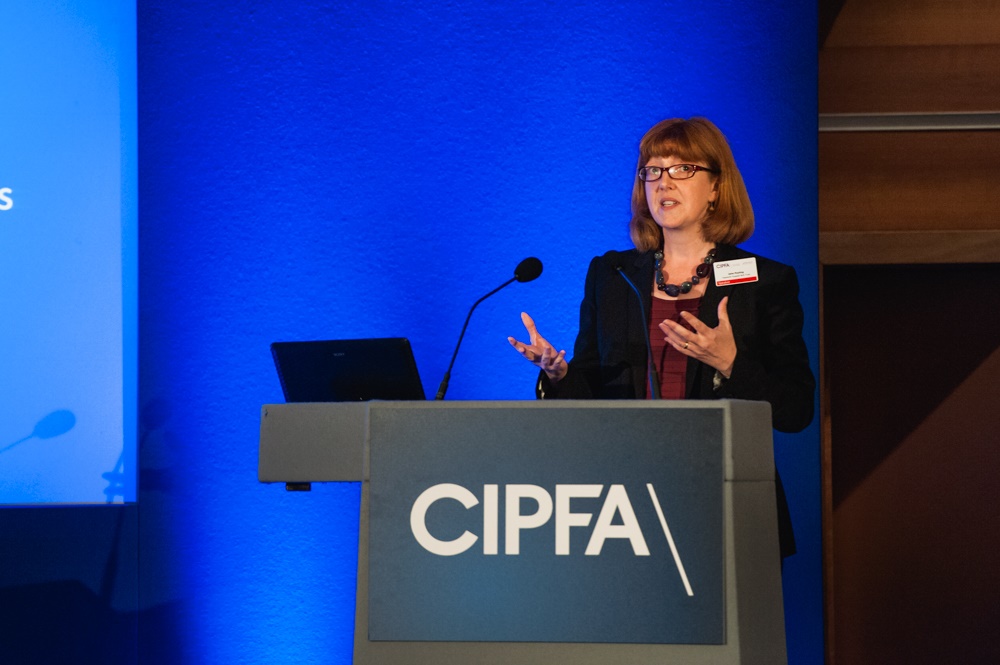20.06.16
What would a Brexit mean for the NHS?
Source: NHE May/Jun 16
 Jane Payling, head of health and integration at the Chartered Institute of Public Finance and Accountancy (CIPFA), discusses the lack of public awareness on how the EU affects health and social care ahead of this month’s Referendum.
Jane Payling, head of health and integration at the Chartered Institute of Public Finance and Accountancy (CIPFA), discusses the lack of public awareness on how the EU affects health and social care ahead of this month’s Referendum.
As the EU Referendum fast approaches, campaigners from Vote Leave have been touring the country in a battle bus which has stuck on its side, in giant letters, the claim that leaving the EU could free up £350m a week for the NHS. Unsurprisingly, Britain Stronger In has disputed this figure, arguing that it is misleading and inaccurate. This is because it ignores funding which returns to the UK through our rebate, and specific EU support to both the public and private sectors.
Indeed, as the bus continues to tour Britain, campaigners from the pro-remain group have been making a splash in the media on how Brexit could damage the NHS. Simon Stevens, CEO of NHS England, was one of the latest industry leader to warn the public that the sustainability of the health service could be greatly undermined in the event of an exit due to the impact on public finances of the anticipated economic shock.
As campaign groups fire out claims and counter-claims on the realities of EU membership on the NHS, it is worrying that the health service seems to be part of their main strategy to engage with the public, particularly when it is used as a tool to scaremonger. Given the high political stakes, it is not surprising that campaigners are capitalising on the fondness the public have for the NHS by making it a core issue. However, it is of utmost importance that the public aren’t just presented with spin that only serves to position campaigners as the true champions of the NHS. The EU has a subtle and far-reaching effect on the health sector which is much broader than the pure economic arguments.
Public unaware of the impact the EU has on health
Worryingly, a ComRes opinion poll for CIPFA shows that the public seem to be unaware of the impact the EU has on health, with nearly half of those polled (46%) believing that membership of the EU makes no difference to health delivery.
In comparison, leaders in the sector, in separate independently conducted in-depth interviews CIPFA commissioned, reflected a far stronger opinion. Indeed, 19 out of 20 interviewees, which comprised CFOs and CEOs, said the benefits the EU has on public services outweigh any drawbacks.
One of the principle reasons for their support of the EU was their appreciation of networks between EU members. They praised these networks as powering research and allowing for the exchange of ideas, which is critical to evidence-based healthcare. These networks also provide the opportunity for healthcare professionals to learn how services operate in other member states, with interviewees stating they had often been inspired by these different governance, funding and delivery models.
In 2011, the Coalition government praised this kind of collaboration and its significant positive impact on research. In its ‘Balance of Competences’ report, it highlighted how collective public health research between member states has helped tackle tobacco addiction, alcohol abuse and other health inequalities.
In the next few years, the EU will implement policies to tackle obesity at a European level. As illnesses caused by obesity costs the NHS an estimated £6.3bn to treat in 2015, any work to try and alleviate this pressure is positive.
So-called ‘lifestyle’ diseases are widely acknowledged as being partly responsible for an increase in service demand. Immigration is also strongly perceived as another contributing factor through the impact of health tourism, which is made easier by Freedom of Movement policies within the EU. However, those interviewed as part of our research, cited immigration and its impact on free movement of workers as beneficial to the health and social care sector – pointing out the significant boost healthcare professionals from other member states have made to the sector’s workforce. There is the concern about how the sector would cope without this source of skills and expertise in the event of a ‘Brexit’.
Indeed, figures from the TUC estimate that approximately 50,000 migrants from the European Economic Area (EEA) work in the NHS, representing around 4.5% of the total workforce. Considering the Public Accounts Committee has issued concerns on staff shortages, which it estimates to be around 50,000, any further reduction in numbers could cause significant difficulties in the delivery of services. Health provider budgets, which overspent by £2.45bn in 2015-16, would be stretched even further to fund larger numbers of locum and agency staff.
However, it is a matter of conjecture on whether the NHS would lose staff if the UK were to ‘Brexit’. It may be the case that the UK would still have to participate in the Free Movement Policy as a condition of any UK-EU trade agreements. Indeed, that has been one of the principle issues of considering ‘Brexit’ – nobody can say for certain exactly how things would work outside of the EU.
As the Referendum draws closer, it is important that these unknowns are addressed. Considering the lack of public awareness on how the EU affects the public sector, the absence of objective information is a great concern. This is one of the most significant decisions in a generation, which must be made on evidence rather than spin!
Tell us what you think – have your say below or email [email protected]